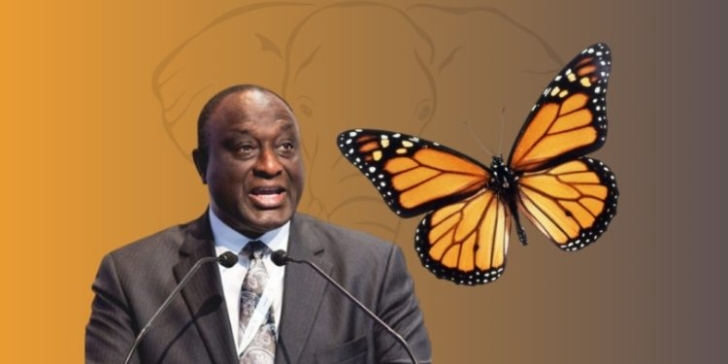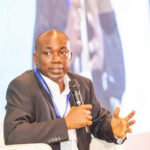n Ghana’s political drama, it appears Alan Kyerematen has once again taken center stage; this time, not with innovation, but with imitation. His “Movement for Change” has rebranded itself as the “United Party” (UP), a move so boldly revisionist that it raises questions about whether political history has become a buffet where anyone can serve themselves a heritage they never truly created.
History attests to this truth: there is and can only ever be one United Party; born of purpose, not politics, emerging from colonial resistance and named by the moral and intellectual leaders of our national conscience — Dr. J.B. Danquah, Dr. K.A. Busia, and Chief S.D. Dombo. That *United Party was not a superficial branding stunt; it was a philosophical union built on ideals: liberty, human dignity, and inclusive development. It was a covenant, not merely a campaign slogan.
Rebranding the “Movement for Change” as the United Party is akin to stealing from history’s library and claiming authorship of a book one never authored. It’s like a tenant renaming his landlord’s house because he once lived there. The political lineage of the United Party isn’t a T-shirt to be printed by every disgruntled politician exiting through the revolving door of the NPP.
Alan’s move reeks of political mischief and intellectual dishonesty. Having resigned from the NPP twice; a party itself the direct descendant of the original United Party, Alan’s latest stunt reveals not courage but confusion masquerading as reinvention. The irony borders on poetic: a man leaving home twice only to build a replica of the same house across the street, with fake pillars and borrowed paint.
The Danquah-Busia-Dombo triangle symbolizes more than personalities; they embody ideological archetypes.
1. Danquah stood for freedom under law, intellectual integrity, and respect for individual conscience.
2. Busia represented human-centered democracy, governance rooted in empathy and moral leadership.
3. Dombo championed grassroots inclusion, ensuring power was shared rather than monopolized by the elite.
These giants built a house of ideas, not a shack of ambition. Their unity came from conviction, not convenience. Their party; the United Party, was a movement of destiny, not a reply to personal disappointment.
Alan’s attempt to claim that sacred name is therefore a political parody, a desperate effort to cloak personal ambition with borrowed glory. But history isn’t easily fooled. You might repaint a chariot, but you cannot replace the horses that pulled it through the storms of time.
If the original United Party was a symphony, Alan’s version is a karaoke rendition: loud, confident, and painfully off-key. Ghana’s democracy needs originality, not opportunistic echoes. We can forgive ambition; what we cannot accept is the attempt to plagiarize history and pass it off as vision.
Let history record: there can never be a second United Party because the first was more than a name; it was a testament, sealed by the sweat and minds of patriots who believed that freedom and development could coexist in the African spirit.
To borrow that legacy without bearing its burden is to wear the crown without the cross. And as any serious student of politics knows; every fake jewel shines until the light of truth reveals it.




